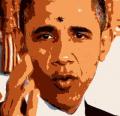Evidence Not Seen
Two weeks ago, I iggerently re-posted Milady's review of a book instead of the one I meant to. So, before today gets away from me, here's her review. Starts off saying she "just read" this, but the text file date is three months ago. She needs to not depend on my to pass these along, eh?
======
I just read "Evidence Not Seen: A Woman's Miraculous Faith in the Jungles of World War II" by Darlene Deibler Rose.
Darlene Deibler was a very young missionary woman recently married to another missionary when she left the United States in early 1938. They went first to Holland to study the Dutch language. Their ultimate destination was New Guinea in what was then the Dutch East Indies.
At one of their postings she was the first white woman that any of the natives had seen. She had to convince them that she was actually human. They built their own shelter and learned from the locals the tricks of growing food in their new environment.
They were almost entirely isolated from the outside world. But, of course, the world intruded. When the Dutch government moved their troops out of the frontier areas as the Japanese approached, the missionaries were forced to retreat, too.
The missionaries ended up living on the island of Celebes where they were under house arrest for a while. The men were taken away except for one older man. Eventually they were all forced to move to the POW camps. Men and women went to separate camps.
Though these were fairly brutal work camps, physical hardships were not as bad as the psychological ones. Darlene learns that her husband, the Rev. C. Russell Deibler, had died in Pare Pare, the men's camp, three months before. She is held and repeatedly interrogated by the secret police and told she will be executed for spying. Through it all Darlene manages to maintain her faith in God and see it grow and deepen as she is repeatedly saved from diseases, bombs, and the horrors of captivity.
This is a riveting story written in a simple style which nonetheless is poetic and brilliant in the way it explains the inner life that was so important to the people who survived with their souls intact.
[begin quote]
"I have seen photos of the wild victory celebrations that took place in New York, San Francisco, and similar places when the announcement of VJ Day was broadcast to the nation -- crowds singing, dancing, drinking, and kissing (whomever!) in the broad, confetti-filled, brightly lit streets!
It wasn't like that in Kampili. We were not safe on home soil, nor outside the barbed wire, nor half a world away from the battlefields, some still wet with the blood of fathers or sons or brothers. We were still within our prison confines, still separated from our families. We had nearly four years behind us of total isolation from the rest of the world, wondering how that world had changed, and who of our loved ones would be left. There was not even a conquering soldier in sight who had come to set us free, whom we could thank, whose hands we could kiss and wet with our tears of gladness. The full import of what we had just heard would come later.
It was a silent celebration of tears rolling down gaunt faces burned deeply while laboring in the sun on roads, in rice fields, in pig pens, on coolie lines loading and unloading trucks, emptying septic tanks; faces on which sorrow and suffering had etched their deep lines. For ours had been a silent war of waiting, and we had measured courage in simple endurance!
There was no riotous drinking. These were a people who had drunk deeply at the bitter waters of Marah, from the cup of isolation, separation, and the loss of loved ones -- a people whose thirsty souls has just savored the first few cool, refreshing drops of freedom!
There were no happy songs filling the air, interspersed with shouts of victory. But I think the hosts of heaven must have hushed to hear the anthem of praise to our God and King, ascending from a thousand hearts or more, as our lips whispered "Thank you, Father. From the depths of our being, we thank you!"
[end quote]


